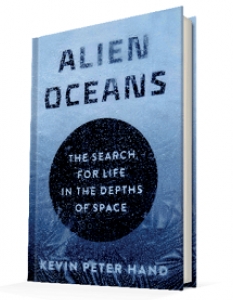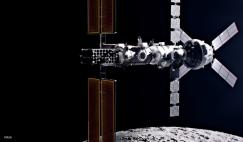Two developments of recent decades include a focus on the search for life on other planets and an increase in the number of books on space science written as a personal narrative, both of which are welcome. This book combines the two developments in an accessible and educational package.
As the author points out, Mars is often seen as the most promising site for extraterrestrial life, but “some of the most habitable real estate may actually lie farther away” beneath the frozen crusts of some of Jupiter’s and Saturn’s moons. Clearly, this is not news to stop the presses; the possibility of life on Europa, to name just one moon, has been discussed for some time. So why is another book on the subject worth reading?
The answer lies in the normalisation of seemingly unusual careers and the fact that books such as this allow young readers (especially) to realise that they too can follow their dreams. In this case, the author freely admits that a “childhood obsession with aliens” led him to study Europa; and as for writing a book about it, he further reveals in his acknowledgements that “many glasses of wine, cups of coffee and pints of beer” were consumed during its production. So you see, space scientists are humans just like the rest of us!
But the story is not really about humans, it’s about life in the oceans of far-away moons. In 15 chapters, the author takes us from what he justifiably calls “our own alien ocean” to the icy satellites most likely to harbour life. On the way, he revisits the Gaia hypothesis, the Goldilocks zone and other familiar concepts, and laces them together with his personal experience as a deputy chief scientist at JPL. The text is backed up by chapter notes, an index and a small colour photo insert.
The literary chapter titles – such as “Lady with a veil” and “How I learned to love airport security” - give little away, but there is much to be gained from the text itself. One day we’ll know whether there is life in alien oceans; until then books like this will continue to fire our imaginations… and justify our obsessions.











